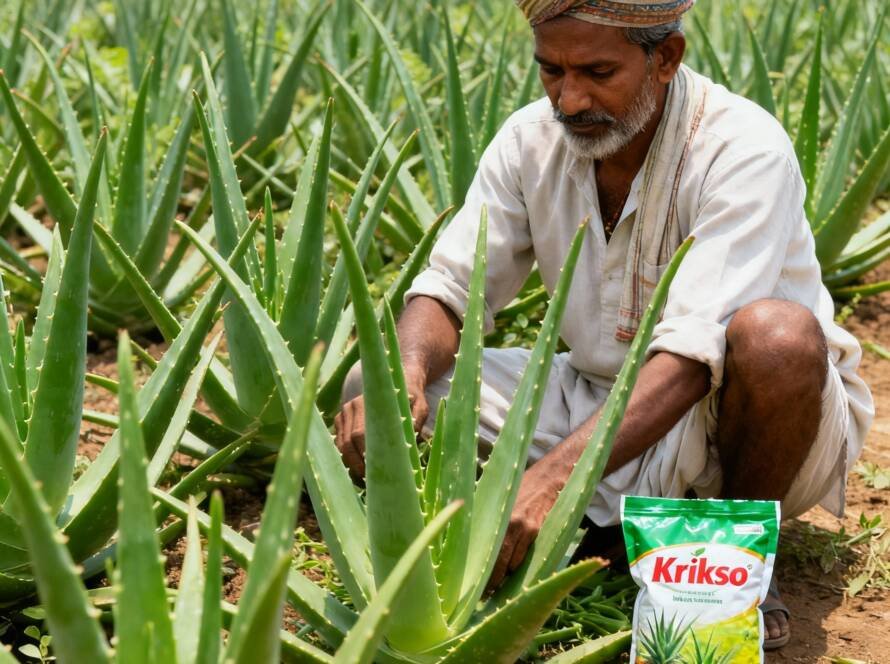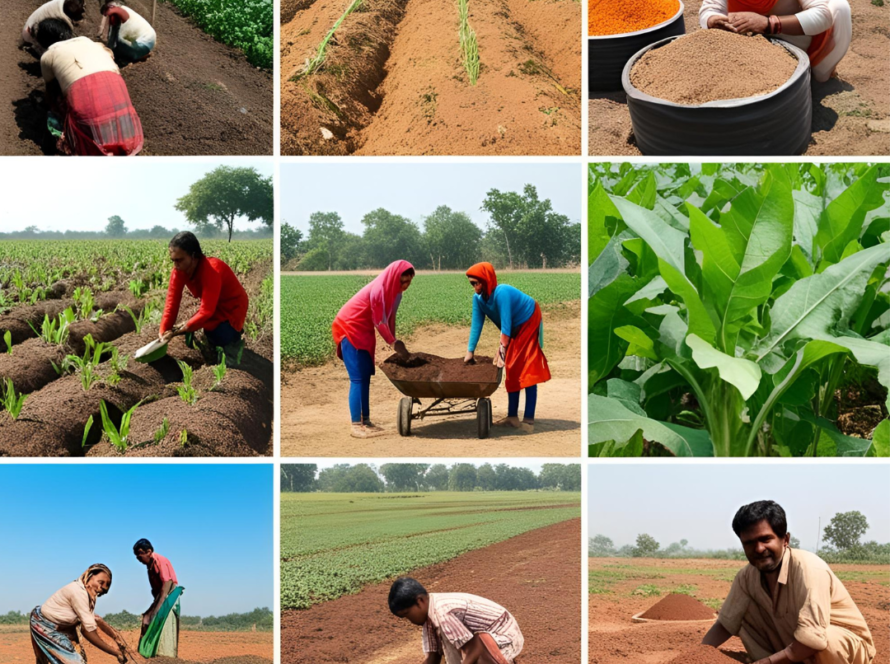Viral infections are among the most challenging crop diseases because they spread rapidly, are hard to treat, and often cause severe yield losses. Unlike fungal or bacterial diseases, viruses cannot be eradicated with chemicals, making prevention and early detection essential for healthy crops.
1. Common Viral Diseases in Crops
- Mosaic Virus – Causes mottled leaves with light and dark green patches; common in vegetables like cucumber, tomato, and okra.
- Tomato Leaf Curl Virus (TLCV) – Leaves curl, become distorted, and yield drops significantly.
- Yellow Vein Virus – Yellowing along the veins of leaves, affecting crops like chili and cotton.
- Banana Bunchy Top Virus – Causes stunted growth and bunching of leaves in banana plantations.
- Groundnut Bud Necrosis Virus – Necrotic spots on leaves and stunted plant growth in legumes.
2. Causes of Viral Infections
- Insect Vectors – Aphids, whiteflies, leafhoppers, and thrips transmit viruses between plants.
- Contaminated Seeds or Planting Material – Viruses can persist in infected seeds or saplings.
- Poor Sanitation – Unclean tools, pruning knives, and crop debris spread viral infections.
- Environmental Stress – Nutrient deficiency, drought, or irregular irrigation increases plant susceptibility.
- Proximity to Infected Crops – Viruses can easily spread to nearby healthy plants.
3. Symptoms to Identify Viral Diseases
- Mosaic-like patterns or discoloration on leaves
- Curling, distortion, or stunted growth of leaves
- Yellowing along veins or entire leaves
- Reduced fruit set and malformed fruits
- Overall decline in plant vigor and yield
Early detection is critical to prevent large-scale losses.
4. Prevention and Management Strategies
- Use Virus-Free Seeds and Saplings – Start with certified planting material.
- Control Vector Insects – Apply organic insecticides or use integrated pest management (IPM) to reduce virus spread.
- Cultural Practices
- Remove and destroy infected plants immediately.
- Practice crop rotation to avoid buildup of viruses.
- Maintain field sanitation and clean tools regularly.
- Resistant Varieties – Grow cultivars known to resist common viral infections.
- Mulching and Netting – Reduce vector activity and protect crops from insect-borne viruses.
5. Krikso India Support for Viral Disease Management
- Certified Virus-Free Seeds and Saplings – Ensures healthier crops from the start.
- Organic Pest Management Solutions – Controls insect vectors sustainably.
- Technical Advisory Services – Expert guidance on prevention, early detection, and integrated disease management.
- Market Linkages – Helping farmers sell high-quality, virus-free produce for better profitability.



